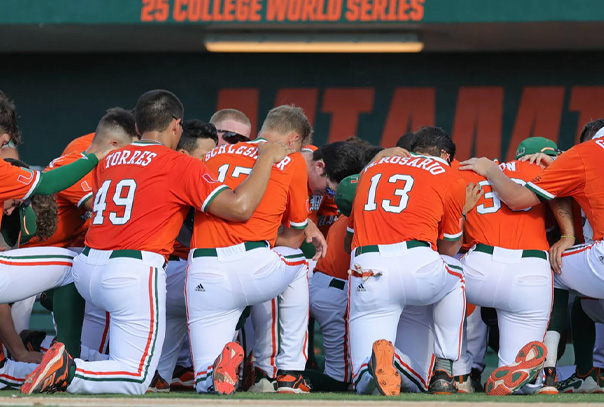 On July 9th, I made the decision to close one chapter in this book we call life and start writing another. When offered the opportunity to join the coaching staff at the University of Miami, it was one that I could not turn down. To leave a historic baseball franchise in the Red Sox where I have spent the last 12 years and move on to an iconic college program with the Hurricanes, the level may be different, but the standard is the same: to win, and to win often.
On July 9th, I made the decision to close one chapter in this book we call life and start writing another. When offered the opportunity to join the coaching staff at the University of Miami, it was one that I could not turn down. To leave a historic baseball franchise in the Red Sox where I have spent the last 12 years and move on to an iconic college program with the Hurricanes, the level may be different, but the standard is the same: to win, and to win often.
Soon after joining the Red Sox in 2012, I learned very quickly where the bar was set as an organization. If we didn’t win the World Series in a particular season, the year was a disappointment, having not reached our ultimate goal. In 2013 and 2018, we got to baseball’s pinnacle and hoisted the Commissioner’s Trophy. In Coral Gables, the expectations are similar. The destination is Omaha, and the objective is to win the National Championship. Anything short of that and we will not have accomplished what we set out to do.
Despite the obvious differences in working in professional baseball and coaching at the collegiate level, in one very simple respect the template is identical. With both Miami and the Red Sox, we are working to win ballgames. And in order to do that, we need to put together a team of players that knows how to play the game. Yes, we need talent, but if we can’t use those physical gifts in a way that helps us score more runs offensively and prevents more runs defensively, then we won’t be shaking hands at the end of the night nearly as much as we want to.
What does it mean to know how to play the game? Well, think about it this way...the game has a voice. The ball has a voice. Both combine to tell players (and coaches) exactly what to do at any given time. Knowing how to play the game entails listening to those voices, knowing precisely what the game needs from you in that specific moment, and being able to do just that. Man on third and less than two outs, the game needs you to drive that runner in; can you do that consistently? The tying run is at the plate and a ball is hit into the gap; can you throw the ball to the correct base and make it harder for the team to score? We are down big and are into the bullpen early; can you come into the game and stop the bleeding and save our pitching staff for the next game? In every inning, in every pitch, the game is talking to us.
My first assignment back on the college side was to attend an amateur tournament and evaluate potential recruits and figure out which would be able to help get us to Omaha. Every coach in attendance—myself included—was dazzled by those who showed standout athletic ability. But for what we are trying to do as a program, it goes well beyond just the physical talent. What are they actually doing with their talent? Are they using it in a way that is listening to the game or are they essentially playing in a bubble, oblivious to what the situation of the game is calling for?
The last time I checked, coaches aren’t in the business of leaving players on the bench who can play a part in winning games. This coach sure isn’t. No matter how hard you throw, how fast you run, or how much power you have, there is always a place in the game for those who know how to play the game.
While working for the Red Sox, as prospects worked their way up the Minor League system and started knocking on the doors at Fenway Park, a simple question would be asked to help determine if they were ready to help our Major League club: is the player reliable? At the game’s highest level, could we rely on him to do what he is supposed to do when he is supposed to do it? Or, in other words, can he actually play the game? When that answer is yes—whether you’re in the Big Leagues or on a college campus—you’re on the right track.